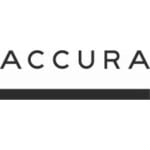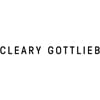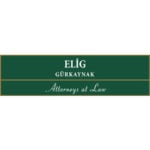-
What is the relevant legislative framework?
Germany’s relevant legislation for cartels is Section 1 German Act against Restraints of Competition (GWB) which essentially corresponds to Article 101(1) of the Treaty on the Functioning of the European Union (TFEU) except for the inter-state clause.
Like European competition law, the GWB prohibits Agreements between undertakings, decisions by associations of undertakings and concerted practices which have as their object or effect the prevention, restriction or distortion of competition. In line with European law Section 1 GWB covers horizontal and vertical restrictions. The civil sanction of nullity in contractual relationships follows from a provision in the German Civil Code (BGB).
Consistent with Article 101 (3) TFEU, Section 2(1) GWB provides for an exemption where the efficiencies of an agreement and a fair share of the resulting benefit for consumers outweigh the anticompetitive object or effects. Therefore, companies are required to do a self-assessment of whether an agreement that restricts competition might benefit from an exemption under Section 2(1) GWB.
In addition, German competition law provides for a number of exemptions, including for cooperations between small to medium-sized enterprises (SMEs) if the agreement does not significantly affect competition on the market and the agreement serves to improve competitiveness of these SMEs (Section 3 GWB) as well as for certain cooperations and practices in specific sectors such as the agricultural (Section 28 GWB), press (Section 30 GWB), water management (Section 31 GWB) and forestry sectors (Section 40 Federal Forest Act).
-
To establish an infringement, does there need to have been an effect on the market?
An infringement may be established either by object or by effect. Cartels regularly qualify as by object infringements for which no anti-competitive effects need to be proven.
-
Does the law apply to conduct that occurs outside the jurisdiction?
In line with European Competition law, German competition law provides for the effects doctrine according to which the GWB applies to all restraints of competition that have an effect in Germany, even if they were caused outside of Germany and irrespective of where an undertaking involved has its registered office.
-
Which authorities can investigate cartels?
In Germany cartels are prosecuted by the FCO which is located in Bonn. The FCO employs more than 400 enforcers including lawyers, economists and IT specialists and thus stands among the strongest and highly rated enforcement authorities regarding financial and human resources.
In addition, the federal states also have competition authorities which are competent for cartel activity that is limited to the territory of a federal state or a smaller region. Their enforcement activity, however, does only play a minor role in practice.
-
How do authorities typically learn of the existence of a potential cartel and to what extent do they have discretion over the cases that they open?
There are several means through which the FCO becomes aware of the existence of a potential cartel activity:
- Leniency applications of competitors which offer substantive information about a cartel in which they have participated in exchange for full or partial immunity from fines (Section 81h-81n GWB)
- Whistle-blowing tools through which information or complaints can be submitted (anonymously) by in particular competitors, customers, distributors or employees. In the implementation of the EU Whistleblowing Protection Directive, employers with a normal workforce of at least 50 people are obliged to establish internal reporting offices. In addition, the FCO is one of the competent external reporting offices for reports of information on breaches of cartel laws. The FCO’s electronic whistleblowing system can be accessed via the FCO website and allows for the secure and anonymous submission of information regarding potential infringements. The FCO can then follow up on the provided information through an anonymous messaging system.
- The internal investigative measures in place include data-driven cartel-screening tools that use AI to analyse repetitive price patterns and mechanisms among competitors, with a view to detecting price-fixing practices and anti-competitive bidding behaviour in tender procedures. The FCO has recently emphasised that cartels can no longer feel secure, as the potential for AI-driven detection of such behaviour is increasing. In addition, the FCO has upgraded its IT division to the status of a separate department with more personnel. The primary objective of this strategic initiative is to enhance the utilisation of AI, data analysis and data evaluation systems.
- Cooperation and exchange of information within the European Competition Network (ECN) or the International Competition Network (ICN), although this has taken a minor role in the past.
The FCO retains full discretion over the cases it pursues. Individuals who disclose information through the whistleblowing process will not be eligible for a formal investigation by the FCO. The FCO usually decides based on the availability of resources, probative value and volume of collected evidence.
-
What are the key steps in a cartel investigation?
Should sufficient evidence be obtained indicating potential breaches of the cartel prohibition, the FCO will typically submit a request to the regional court for a judicial search warrant, thus enabling the execution of a dawn raid (unannounced inspection). Dawn raids provide the FCO with the opportunity to gather further evidence and verify any information received. Dawn raids remain a key investigative measure used by the FCO to secure evidence. However, the FCO has increasingly adopted formal information requests, which require a comprehensive response. Furthermore, the FCO is at liberty to question witnesses (usually employees of the accused undertaking) at any time during the proceedings. These interviews are often conducted after a dawn raid to further investigate the facts.
The FCO will inform the accused undertaking(s) of the initiation of formal proceedings, the established facts to date, and give the opportunity for a written statement to comment on the accusations. In certain cases, the FCO may opt to hold an oral “state of play meeting” in lieu of the written statement, allowing for comments to be provided within a specified timeframe.
Depending on the circumstances of each case, the FCO may, at its discretion, propose to the parties an agreement to settle the proceedings. For a settlement, the parties will need to admit guilt in exchange for a swift resolution, a short written decision and a reduced fine. Should settlement negotiations prove unsuccessful, the FCO will provide the parties with a statement of objections (SO), outlining its findings and a provisional legal assessment. The defendants may then provide comments on this statement and present their own opinion and arguments. Cartel proceedings of the FCO are concluded with the authority issuing a written fine notice. The defendants have the right to appeal the fine notice to the Higher Regional Court in Düsseldorf.
There is no specific limitation on the timeframe for an investigation by the FCO, and cartel proceedings often take several years. However, the prosecution of the offence is limited by the 5-year limitation period set in Art. 81g GWB. The FCO may interrupt the limitation period in a number of ways, for example by obtaining a search warrant or formal delivery of the SO. The 5-year limitation period will start anew after any interruption.
-
What are the key investigative powers that are available to the relevant authorities?
The FCO has extensive investigatory powers which include:
- Request for information
The FCO may send requests for information (RFI) to undertakings and natural persons not only in administrative, but also in cartel proceedings. With this instrument the FCO may formally request the provision of information and the surrender of documents. The RFI can also be sent to concerned companies with offices or subsidiaries outside of Germany.
- Dawn raids
Dawn raids are a key investigative measure of the FCO in cartel proceedings. The search needs to be authorized through a search warrant issued by the regional court. The FCO may search business premises, vehicles and private homes of business owners or employees and has the right to seize original documents if not handed out voluntarily. In light of paperless offices and remote working, dawn raids focus on copying digital data from servers, laptops, smartphones and other data storage devices. The FCO may ask the IT department of the searched company for full access to digital data, including cloud storage.
Broader investigative powers than the European Commission:
Companies and individuals have a duty to cooperate and provide information during the dawn raid. The general right of individuals to refuse to give evidence does not apply if the information only gives rise to the risk of prosecution in cartel fine proceedings by the competition authority and the FCO issues a so-called non-prosecution commitment, Sections 82b, 59(4) GWB.
- Interviews
The FCO may question individual persons as witnesses of the cartel activity. Witnesses are obliged to testify and the interviews take place in person at the premises of the FCO. Due to the obligation to cooperate, company representatives must also provide information that may likely lead to prosecution against the company. Such information, however, cannot be used in criminal proceedings or cartel investigations against the company representative or a relative.
-
On what grounds can legal privilege be invoked to withhold the production of certain documents in the context of a request by the relevant authorities?
Germany has not implemented the same standards regarding legal privilege as those set out in the ECN+-Directive for the EU member states. Under German law only correspondence which is in the possession of the company’s external lawyers falls under legal privilege. Therefore, correspondence between the company and its lawyers (including inhouse legal counsel) which is found during the search of a company is generally not privileged and may be seized. There is only one exemption: Correspondence between the external lawyer and the company regarding the defence of this cartel investigation may not be seized during the course of the dawn raid.
-
What are the conditions for a granting of full immunity? What evidence does the applicant need to provide? Is a formal admission required?
In contrast to a few other jurisdictions where also vertical behaviour may benefit from leniency, in Germany, rules on the leniency programme which are laid out in Section 81h to 81n GWB only apply to “classic cartels” in the form of horizontal competition restraints. However, in practice, the FCO has also offered significant reductions up to full immunity from fines in vertical cases and continues to openly communicate its right for this procedure outside the leniency programme. Nonetheless, this provides an unnecessary and deterring uncertainty for potential leniency applicants.
Immunity under the leniency programme may be granted not only to companies, but also to individual persons.
Full immunity from fines is granted in two constellations:
- The applicant is the first to submit evidence that enables the FCO to obtain a search warrant for the first time.
- The FCO already has enough information to obtain a search warrant, but the applicant is the first to submit evidence that makes it possible to prove the infringements for the first time.
In any case, full immunity from fines is not granted to those companies that coerced others to participate in or remain a member of the cartel.
The leniency applicant must fully cooperate and fulfil the conditions set out in Section 81j GWB which include disclosure of knowledge of and participation in the cartel as well as continuous cooperation and provision of information (evidence) during the entire proceedings.
Leniency applications can be submitted at any time either in writing or in electronic form.
-
What level of leniency, if any, is available to subsequent applicants and what are the eligibility conditions?
Applicants who fail to qualify as an immunity candidate, may receive a reduction of the fine by up to 50% if the following conditions are met (Section 81l GWB):
- The applicant submits evidence of the cartel which, relative to the information and evidence already available to the FCO, represents significant added value for the purpose of proving the offence.
- The applicant fulfils the general conditions for leniency outlined above regarding full cooperation and exhausting all available means to establish the facts.
The actual amount of the reduction is determined by the FCO on the basis of the usefulness of the information and evidence and the timing of the leniency application.
-
Are markers available and, if so, in what circumstances?
Before submitting the lengthy leniency application, it may be advisable for a company to declare its willingness to cooperate (marker) in order to save a higher rank in the list of leniency applicants. The higher up a company is ranked among the applicants, the higher the potential reduction of fines. Therefore, markers are often submitted quickly during the course of a dawn raid if the searched company fears that other cartel participants might apply for leniency as well.
A marker can be made in writing or communicated orally to the FCO. For reasons of preserving evidence, it is advisable to deliver the marker in writing.
A marker shall contain at least the following information:
- the name and address of the applicant,
- the names of the other cartel participants,
- the products and areas affected,
- the duration and the nature of the offence (with particular emphasis on the applicant’s own involvement and
- information on any past or possible future leniency applications relating to the alleged cartel activity that have been made or will be made to other competition authorities.
The FCO will confirm receipt of the marker, stating the date and time upon request of the applicant. Further the FCO will set a deadline (usually of not more than 8 weeks) until when the applicant needs to submit the complete leniency application together with the corresponding evidence. After timely submission of the leniency application, the applicant’s rank in the queue for leniency is determined on the basis of the time of the marker. If the application is not delivered within the deadline, the marker automatically loses its effect and becomes invalid.
-
What is required of immunity/leniency applicants in terms of ongoing cooperation with the relevant authorities?
Leniency applicants are obligated to cooperate continuously throughout the proceedings. Conditions for leniency include in particular:
- Disclosure of the applicant’s knowledge of and participation in the alleged cartel activity.
- Termination of any involvement in the alleged conduct immediately after filing the leniency application (except if ordered otherwise by the FCO for investigative purposes).
- Prompt delivery of all information and evidence accessible to the applicant.
- Making employees available for questioning.
In the context of cooperation, the applicant must keep its cooperation with the FCO confidential until the authority releases it from this obligation.
-
Does the grant of immunity/leniency extend to immunity from criminal prosecution (if any) for current/former employees and directors?
Unlike the requirements set out in the ECN+-Directive, the German leniency programme does not extend to immunity from criminal prosecution of natural persons. This is especially relevant as bid rigging is considered a criminal offense.
-
Is there an ‘amnesty plus’ programme available in respect of evidence provided to prove additional infringements?
A formal “amnesty plus” programme does not exist in Germany. However, the FCO may grant immunity for any additional infringements separate for which immunity has already been granted. In addition, companies that have not qualified for immunity for a cartel, can still receive partial immunity with a significant fine reduction if they provide the FCO as the first with sufficient evidence to prove distinct parts of the infringement (e.g. additional period or additional scope of the infringement).
-
Does the investigating authority have the ability to enter into a settlement agreement or plea bargain and, if so, what is the process for doing so?
Settlement agreements are a frequently used instrument by the FCO to efficiently conclude cartel proceedings within a comparably short period of time in exchange for a reduced fine (maximum reduction of 10%). The settlement procedure is not regulated by statutory law and there is no court approval necessary for a valid settlement. A settlement can be concluded independent of a leniency application and leads to a further reduction of the fine. Hybrid settlements are generally possible as well. The initiative for settlement negotiations usually comes from the FCO and is at its own discretion depending on the established facts and underlying evidence. The parties concerned may also ask for settlement negotiations.
The settlement procedure starts with the FCO explaining its findings to the party and granting partial access to the files. The FCO will name a maximum fine which will not be exceeded if the settlement negotiations are successful. The parties of the investigation will be heard and may give their opinion on the alleged cartel activity and bring forward reasons for a reduction of the fine. Settlement negotiations may include several rounds of negotiations. The FCO will provide a draft settlement agreement which consists of:
- a summary of the results of the investigation outlining the established facts of the case,
- circumstances relevant for the assessment of the fine and
- the amount of the fine to which the settling party agrees.
To conclude the settlement agreement the settling party must acknowledge the established facts of the case as true and agree to the fine. However, this does not include an approval of the FCO’s legal assessment of the case. The parties will be granted a limited time period to accept the settlement agreement.
If the settlement negotiations fail, the cartel proceedings continue in the standard procedure with a formal SO, the option to comment on this and finally the written fine notice.
Even after concluding a settlement agreement every concerned party is free to file an appeal against the summary fine notice. In that case the FCO cancels the summary fine notice and issues the long version of the fine notice with reasons for the decision which may then be appealed before the Higher Regional Court in Düsseldorf.
-
What are the key pros and cons for a party that is considering entering into settlement?
Key advantages of signing a settlement agreement are the reduction of the fine by up to 10% and a much shorter cartel proceeding which allows the company to recover and leave the case behind faster to return to daily business.
The settlement may further be beneficial for the parties concerned as the summary fine notice does not provide as much information and grounds for follow-on damage claims as a long fine notice would.
In addition, a settlement gives the concerned parties the opportunity to limit the scope of the accusation and thereby additionally reduce the level of the fine.
Lastly, the settlement does not restrict the right of appeal. If the party comes to the conclusion that there is a good chance to overturn the decision in an appeal’s procedure before the court, it may still raise an appeal after receipt of the summary fine notice.
However, a company considering a settlement needs to be aware that the settlement agreement equals a confession on involvement in a cartel and this will become public and go through the press. Depending on the gravity of the infringements and the industry this confession may lead to long-lasting reputational and image damages. In addition, as the settlement agreements are the same for all cartel participants, the established facts may include actions or conduct in which the party was not or only partially involved. With a settlement the accused party waives its right to an inspection of the complete investigation file. Furthermore, since the settlement ends the cartel proceedings more quickly, third parties may immediately address their cartel damage claims against the settling companies, while others who chose the standard procedure are off the radar for several years waiting for the conclusion of the standard FCO procedure and subsequent appeals procedure before the court.
-
What is the nature and extent of any cooperation with other investigating authorities, including from other jurisdictions?
At the national level, the FCO cooperates closely with the criminal prosecutor’s office in bid-rigging cases as these are considered criminal offenses and can therefore lead to a separate conviction of a natural person involved in the bidding process.
On a European level, the national competition authorities (NCAs) closely cooperate through the ECN Network which regularly holds meetings related to the different industries to ensure a continuous exchange. It is also common for NCAs to inform each other of possible cartel activity which affects the markets in neighbouring EU member states and exchange information on their investigations.
On a wider international level, the FCO collaborates with competition authorities worldwide. The ICN is currently chaired by the president of the FCO, Andreas Mundt.
-
What are the potential civil and criminal sanctions if cartel activity is established? How often are civil sanctions and/ or criminal penalties imposed in practice following a finding of an infringement?
Civil sanctions:
Any agreement, decision or concerted practices which violates the prohibition of cartels is void. In addition, anyone who violates antitrust laws is liable to pay for damages. If there is a risk of recurrence, those affected can demand the cartel members to desist from further infringements.
Administrative sanctions:
For less harmful infringements of antitrust laws (e.g. refusal of supply, activities in trade associations), the FCO may open an administrative antitrust proceeding which allows the FCO to:
- Issue an order which obliges the company to terminate the infringement immediately and take all necessary behavioural and structural remedies to bring the infringement effectively to an end. The FCO may further order reimbursement of the benefits generated through the infringement.
- Impose interim measures if these are necessary to protect competition or due to an imminent threat of serious harm to another company.
- Declare offered commitments to be binding on the companies and implemented within a limited period of time.
For severe antitrust infringements, such as hardcore cartels through horizontal or vertical agreements or bid rigging the FCO may initiate cartel fine proceedings which allow to impose fines on natural persons and companies:
- The fine for a natural person is limited to €1 million.
- For companies the fine can reach up to 10% of the worldwide total turnover. The turnover is calculated on the basis of the turnover of the “economic unit”, i.e. the entire group of companies behind the infringing company.
Disgorgement of benefits
It is presumed under German competition law that a company participating in a cartel obtains an economic benefit of at least 1% of its domestic turnover affected by the cartel during the entire duration of the infringement. The FCO has the authority to order the disgorgement of profits derived from the effect of the cartel.
Criminal sanctions:
Criminal sanctions may be imposed only on natural persons and not on legal entities under German Law. Criminal sanctions for anticompetitive-conduct exist only for bid rigging and usually entail a monetary fine. Often, bid rigging cases do not fall under the provisions provided for in the German Criminal Code due to the nature of the tender procedure. Those cases may be sanctioned under the ban on cartels pursuant to Section 1 GWB.
-
What factors are taken into account when the fine is set? Does the existence of an effective corporate compliance strategy impact the determination of the fine? In practice, what is the maximum level of fines that has been imposed in the case of recent domestic and international cartels?
In 2021 the FCO has published new guidelines for the assessment of fines in cartel proceedings. As a first step in assessing the fine the FCO will determine an initial value which puts the turnover affected by the infringement in relation to the worldwide total turnover of the corporate group of companies. After determining this initial value as a starting point the FCO will in particular consider the following aggravating or mitigating circumstances:
- The type of antitrust infringement (e.g. hardcore cartel or vertical constraints),
- the amount of turnover affected by the infringement (offence-related turnover),
- the relevance of the products and services affected by the infringement (e.g. dimension of the geographical market affected),
- the manner in which the infringement was committed (wilful intent/negligence)
- previous infringements committed and precautions taken to prevent further infringements.
- the company’s efforts to prevent and uncover the infringements which includes a compliance management system and the implementation of internal investigations in case of suspicious conduct).
- effective post-offense compliance measures implemented after termination of the infringements to prevent and detect any further infringements.
Up until the Covid-19 pandemic hit, the FCO imposed high fines for cartel infringements. In 2020 the FCO fined five aluminium forging companies and ten responsible individuals a total amount of approximately €175 million for price fixing agreements. However, this fine was significantly reduced by a court decision in March 2025 after an appeal of the company that had received the highest fine of all cartel members (reduction from €145 million to €30 million). Further, in 2020 wholesalers of plant protection products were fined approx. €155 million for anti-competitive agreements on price lists, discounts and individual prices. During the Covid-19 pandemic many dawn raids had to be cancelled and the amount of imposed fines decreased. However, the number of conducted dawn raids has picked up again in the last two years with 18 searches in 2022 and 11 searches each in 2023 and 2024.
-
Are parent companies presumed to be jointly and severally liable with an infringing subsidiary?
In line with EU law Germany follows the concept of a group company-related fine which means that not only the company that committed the infringement through its own employees may be fined but also its parent company , if it directly or indirectly exercised a decisive influence on the subsidiary at the time of the infringement. If both the subsidiary and the parent company are fined, both companies are jointly and severally liable vis-à-vis the competition authority.
-
Are private actions and/or class actions available for infringement of the cartel rules?
Private enforcement through “follow-on” damage claims is considered a core element of cartel prosecution in Germany.
Anyone who has suffered damages due to a violation of German antitrust laws or Art. 101, 102 TFEU has a right to claim damages according to Section 33a GWB. The relevant laws include a rebuttable presumption that a cartel results in harm. Furthermore, the aggrieved party may refer to the factual findings of the final administrative order imposing a fine and does not need to prove the infringement. Key issues in cartel damage claims pose the assessment of the amount of damages suffered and submitting sufficient evidence on this point. The situation for private actions has been improved significantly through decisions by the German Supreme Court facilitating the assessment of damages and allowing for lump sum damages.
-
What type of damages can be recovered by claimants and how are they quantified?
The aggrieved party can claim damages which were actually incurred including lost profits. However, in practice lost profits are seldomly claimed and primarily in abuse of dominance cases. Punitive or exemplary damages cannot be recovered.
The amount of damages is generally assessed by comparing the financial situation of the claimant during the cartel period, and the hypothetical situation in which it would have been without the infringement purchasing from a competitively “healthy” industry. However, the claimant is not obliged to specifically quantify and prove the amount of damages to the court. The court may estimate the amount based on an overall assessment and taking into account all relevant factors (Section 287 Code of Civil Procedure). In this context, expert opinions by economists come into play to quantify damages.
-
On what grounds can a decision of the relevant authority be appealed?
[Please address the ability to appeal the merits of an infringement decision, as well as the quantum of the fine.]The appeal does not necessarily have to be substantiated, but in practice this is advisable to present reasons for the appeal and speed up the proceedings. The accused company may for example bring forward mistakes regarding (i) factual findings of the FCO, (ii) due process applied (iii) the legal assessment of the case or (iv) the amount of the fine imposed. The appeal’s proceedings will take place before the Higher Regional Court in Düsseldorf governed by the rules of the German Code of Criminal Procedure. The court must therefore reassess the facts of the case on the basis of its own taking of evidence. This means that protocols of witness testimonies from the FCO’s investigation file may not simply be read aloud during the court hearings. Instead, all witnesses from the FCO’s proceedings must be heard again and testify. The court is of course free to summon additional witnesses. The representatives of the FCO have the same rights as the public prosecutors which includes an extensive right to question witnesses, object to questions, file a motion for evidence and comment on such files of the defense.
At the end of the main hearing the Higher Regional Court may acquit the accused party, impose a new fine decision or order that the proceedings are to be terminated (e.g. due to statutory limitation).
-
What is the process for filing an appeal?
The accused party may file for appeal with the FCO within two weeks from service of the fine notice. The FCO then re-examines the administrative order taking into account the objections brought forward by the accused party. In the majority of cases the FCO confirms its decision and must pass on the appeal to the public prosecutor’s office, which submits the appeal to the Higher Regional Court in Düsseldorf.
The decision of the Higher Regional Court may then be appealed on points of law to Germany’s Federal Supreme Court in Karlsruhe.
-
What are some recent notable cartel cases (limited to one or two key examples, with a very short summary of the facts, decision and sanctions/level of fine)?
Cases relating to resale price maintenance (RPM) continue to play an important role in Germany. In 2024 the FCO fined a manufacturer for telecommunications and network technology products for engaging in vertical price fixing agreements. The authority found that the manufacturer aligned resale prices with resellers, systematically recorded target prices in internal lists, monitored resale prices and used code words when discussing resale prices with resellers. In addition, following reseller’s complaints about “inadequate” resale prices of their competitors, the manufacturer contacted these resellers which usually agreed to raise their resale prices to be in line with the “target prices”. Employees of the manufacturer operated a dedicated chat group to organize the influence on reseller’s sales prices within their responsibility areas.
In another RPM case the FCO fined a manufacturer in the clothing industry. The proceedings were initiated after an application by one of the manufacturer’s resellers and concluded without a dawn raid, based solely on the information collected through RFIs. Besides typical behaviour of the manufacturer to reach the desired price level, the FCO found reporting mechanisms of retailers with corresponding “sanctions” by the manufacturer for selling below the recommended resale price (RRP). The FCO decided to refrain from a fine against the cooperating retailer, as the information provided supported the investigation significantly.
A particularly interesting development relates to the prosecution of bid-rigging. In this regard the German Federal Court of Justice ruled that the 5-year limitation period for bid-rigging agreements only begins to run upon submission of the final invoice. The court found that the distortion of competition continues at least until the contract is fully executed with the final invoice. This decision opposes EU case law according to which the limitation period already begins by concluding the contract between the company that won the tender and the tendering authority. However, member states are free to adopt stricter national procedural rules than Union law. As there is no uniform limitation regime for bid-rigging agreements in the EU it is crucial for internal compliance units to carefully examine tender procedures that involve large long-term projects.
-
What are the key recent trends (e.g. in terms of fines, sectors under investigation, any novel areas of investigation, applications for leniency, approach to settlement, number of appeals, impact of hybrid working in enforcement practice – e.g. dawn raids of domestic premises, ‘hybrid’ in-person/virtual dawn raids, access to personal devices, etc.)??
Besides several tip-offs from various sources, the FCO received 17 leniency applications in 2024. However, the FCO announced that the vast majority of cartel fine proceedings currently conducted is based on information received through sources other than the leniency programme, such as the external reporting unit, which affords whistleblowers a particularly high level of protection. In addition, the FCO increased the use of data-driven market screening tools to find indications of collusion.
In 2024 the FCO carried out 11 dawn raids. In light of paperless offices as well as remote working, the FCO’s dawn raids focus on copying digital data. If key suspects are not present in the office on the day of the search, the FCO will search the employee’s private premises (home office). This makes dawn raid response trainings and corresponding company policies similarly important for employees working from home.
In times of “co-optition” there is a particular focus on the assessment of cooperations in various sectors and industries particularly involving AI. Overall the digital economy remains high on the agenda of the FCO with abuse control cases under section 19a GWB against Meta, Amazon, Microsoft, Apple and Alphabet. The FCO carefully examines big tech companies and their potential to increase dependencies and foreclosure effects as they are present in almost every part of the value chain, from data to the cloud as the infrastructure for AI to proprietary large language models (LLMs).
-
What are the key expected developments over the next 12 months (e.g. imminent statutory changes, procedural changes, upcoming decisions, etc.)?
The FCO intends to focus more on a mixed cartel detection policy relying on external tip-offs, leniency applications and AI driven data screening tools to identify potential collusion. After the last amendment to the GWB in 2023, which equipped the FCO with additional competences regarding remedies following a sector inquiry, investigative powers to examine violations of the DMA and the disgorgement of benefits, it is expected that the next reform of the GWB will grant even more powers to the FCO with regard to enforcing consumer protection laws.
Germany: Cartels
This country-specific Q&A provides an overview of Cartels laws and regulations applicable in Germany.
-
What is the relevant legislative framework?
-
To establish an infringement, does there need to have been an effect on the market?
-
Does the law apply to conduct that occurs outside the jurisdiction?
-
Which authorities can investigate cartels?
-
How do authorities typically learn of the existence of a potential cartel and to what extent do they have discretion over the cases that they open?
-
What are the key steps in a cartel investigation?
-
What are the key investigative powers that are available to the relevant authorities?
-
On what grounds can legal privilege be invoked to withhold the production of certain documents in the context of a request by the relevant authorities?
-
What are the conditions for a granting of full immunity? What evidence does the applicant need to provide? Is a formal admission required?
-
What level of leniency, if any, is available to subsequent applicants and what are the eligibility conditions?
-
Are markers available and, if so, in what circumstances?
-
What is required of immunity/leniency applicants in terms of ongoing cooperation with the relevant authorities?
-
Does the grant of immunity/leniency extend to immunity from criminal prosecution (if any) for current/former employees and directors?
-
Is there an ‘amnesty plus’ programme available in respect of evidence provided to prove additional infringements?
-
Does the investigating authority have the ability to enter into a settlement agreement or plea bargain and, if so, what is the process for doing so?
-
What are the key pros and cons for a party that is considering entering into settlement?
-
What is the nature and extent of any cooperation with other investigating authorities, including from other jurisdictions?
-
What are the potential civil and criminal sanctions if cartel activity is established? How often are civil sanctions and/ or criminal penalties imposed in practice following a finding of an infringement?
-
What factors are taken into account when the fine is set? Does the existence of an effective corporate compliance strategy impact the determination of the fine? In practice, what is the maximum level of fines that has been imposed in the case of recent domestic and international cartels?
-
Are parent companies presumed to be jointly and severally liable with an infringing subsidiary?
-
Are private actions and/or class actions available for infringement of the cartel rules?
-
What type of damages can be recovered by claimants and how are they quantified?
-
On what grounds can a decision of the relevant authority be appealed?
-
What is the process for filing an appeal?
-
What are some recent notable cartel cases (limited to one or two key examples, with a very short summary of the facts, decision and sanctions/level of fine)?
-
What are the key recent trends (e.g. in terms of fines, sectors under investigation, any novel areas of investigation, applications for leniency, approach to settlement, number of appeals, impact of hybrid working in enforcement practice – e.g. dawn raids of domestic premises, ‘hybrid’ in-person/virtual dawn raids, access to personal devices, etc.)??
-
What are the key expected developments over the next 12 months (e.g. imminent statutory changes, procedural changes, upcoming decisions, etc.)?














